Tributaries and their rivers converged, driving wheels and turbines in their wake; water-powered industries were as varied as the waterways that spread their products and developments to the world. With your support for our latest appeal, our staff and volunteers will make this history accessible for everyone in communities linked by these…
Arteries of Innovation
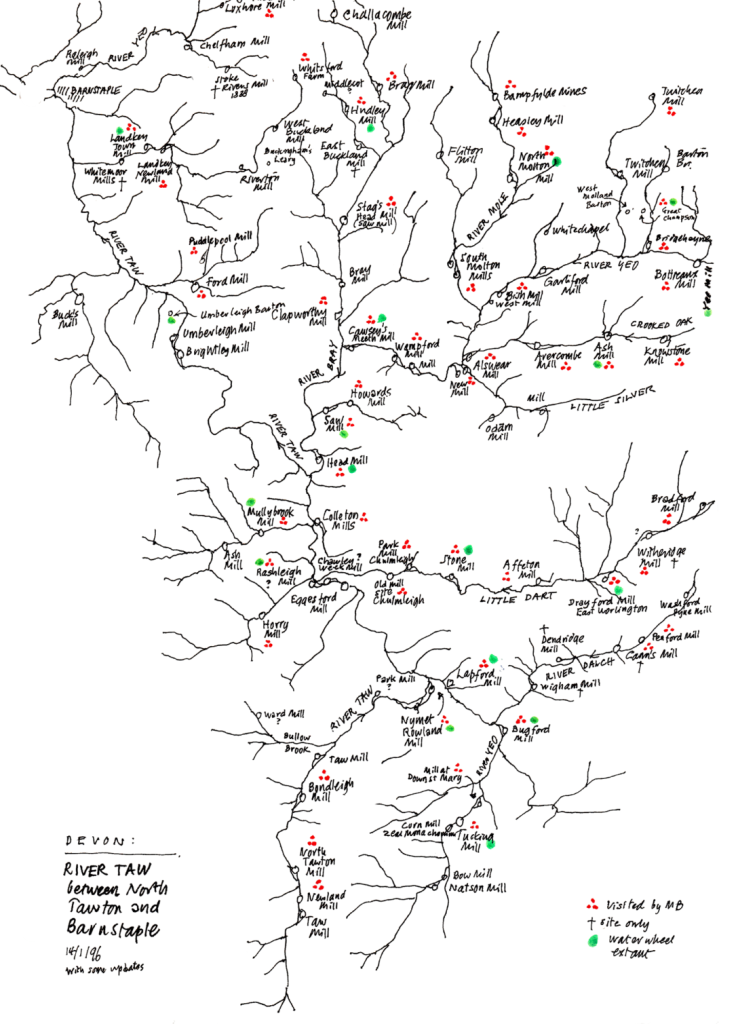
We are grateful to all of those who have donated to our previous appeals. Your generous support allows us to protect this history that we receive. Three collections, arriving over six days, revealed the diversity of the products of water power. Our staff and volunteers need your help to turn this inundation of records into freely available knowledge.
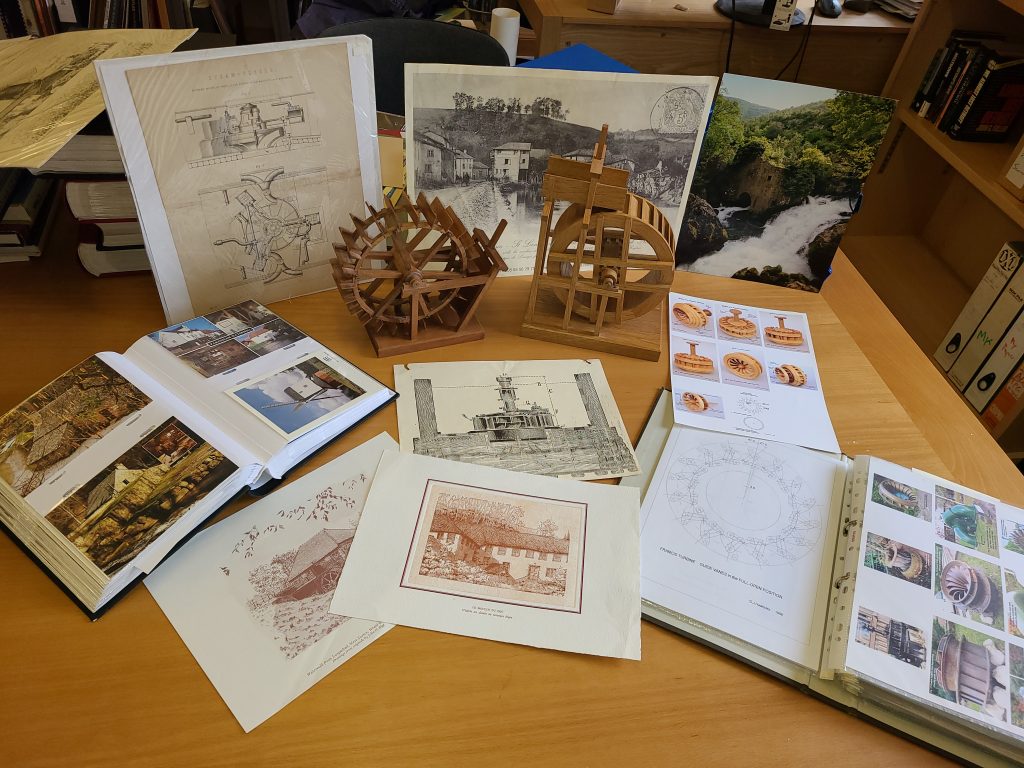
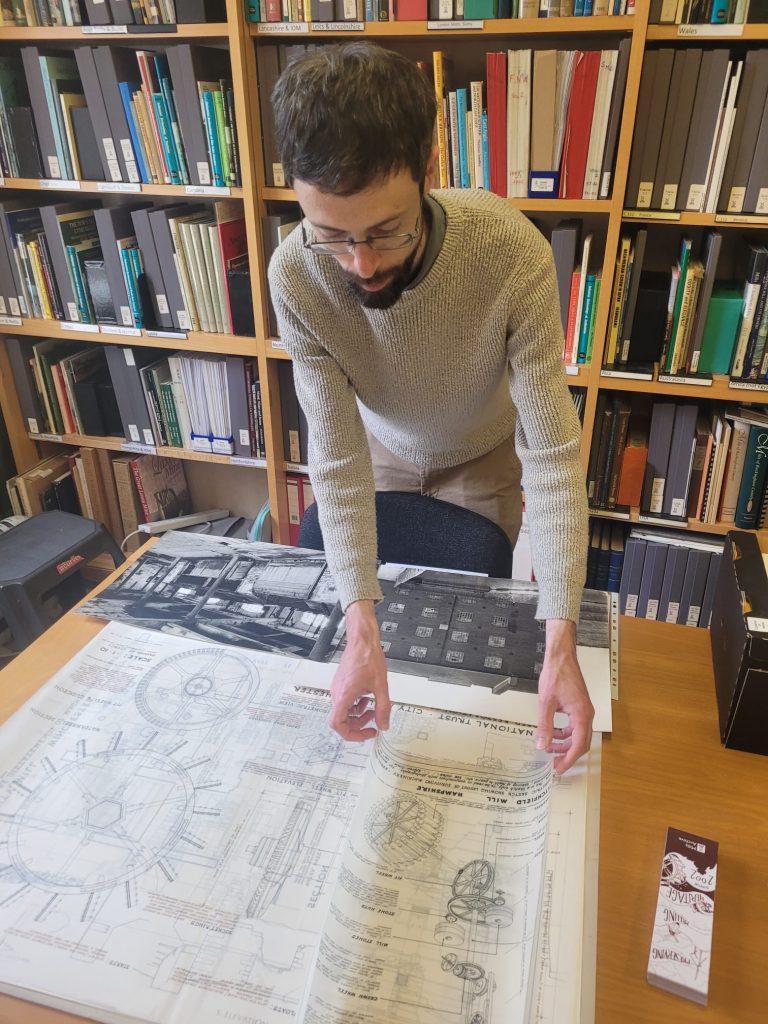
The sea brought wrecked ships and driftwood to the Shetland Islands, material needed to construct horizontal watermills of Norse design.[1] From providing the material lacking on the island, water would usher in the industrial revolution across Europe. It would power the wheels and turbines of nineteenth- and twentieth-century flax and paper industries.
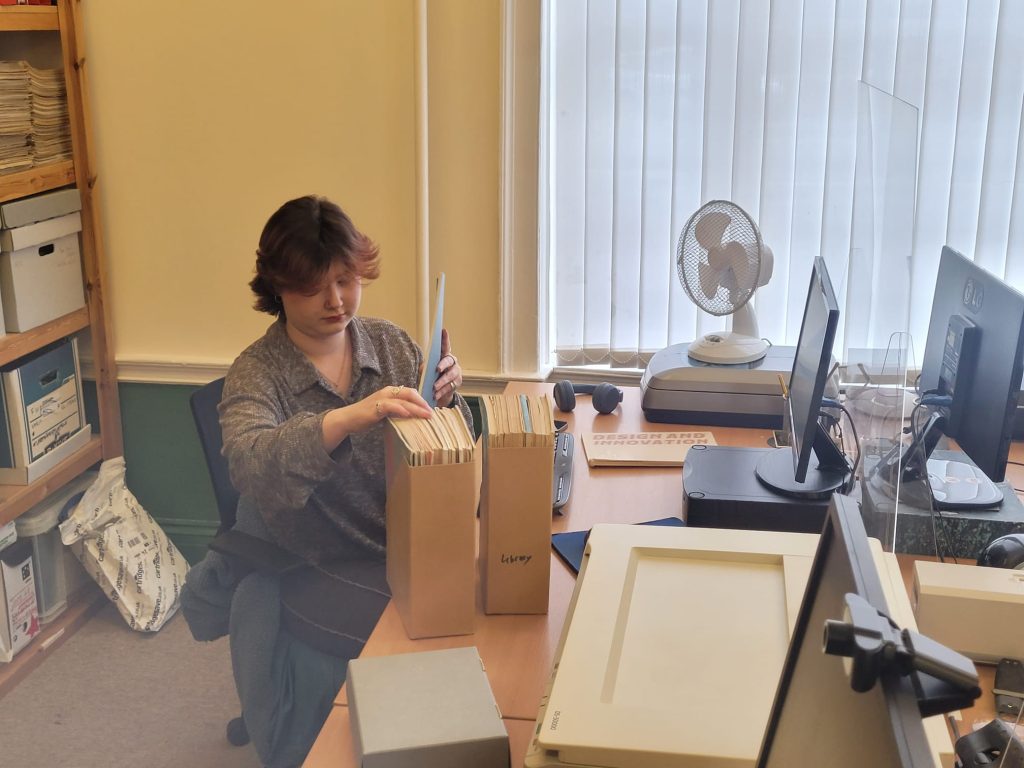
This history was revealed in Dr Jeff Hawksley’s collection. A marine engineer, he became fascinated by watermills and turbines, leaving the Archive with extensive notes and articles. Our volunteers like Amelia are capturing this development over time as she creates an annotated timeline of water power for students. Your help can preserve this knowledge and change the lives of our volunteers as they teach young people about their water power heritage.
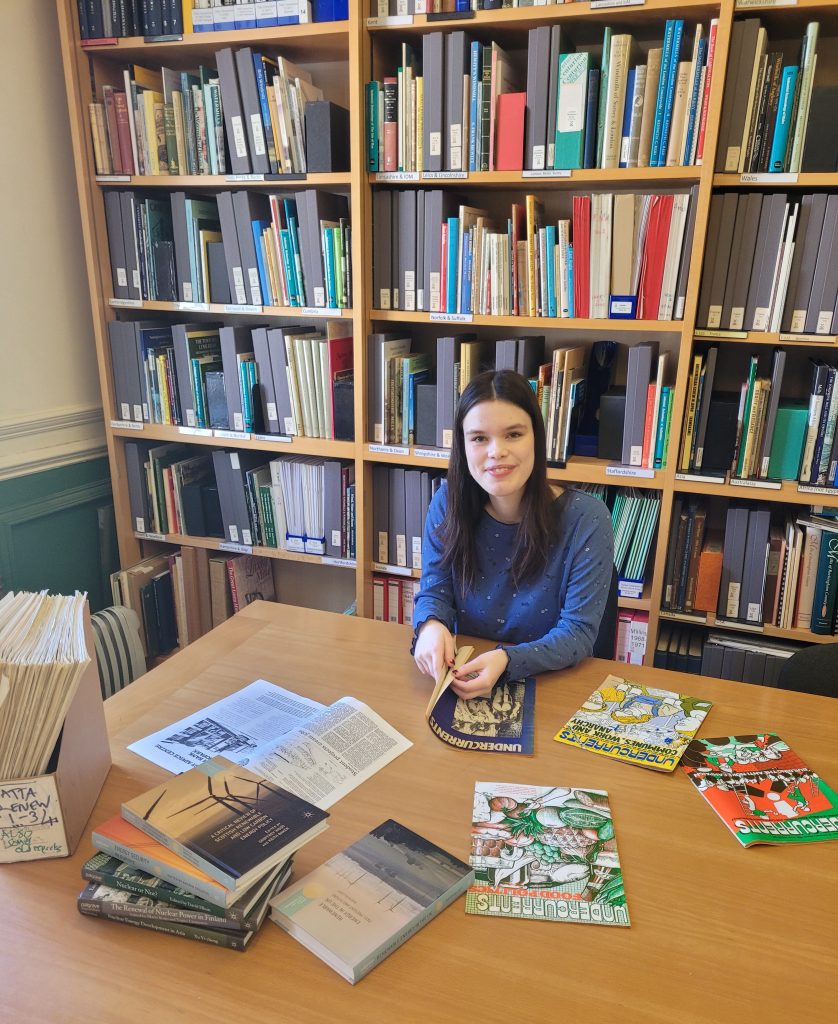
This history must be shared beyond our archive. Our young volunteer, Olive, helped to create lesson plans to teach secondary school pupils about the history of renewable energy from mills to turbines, gaining vital work experience. Likewise, the work of mill experts helps us to preserve this history in our communities. The mill expert, John Reynolds, retrained as an architect after serving as a mariner during the Second World War. As a member of Hampshire Mills Group and the Society for the Protection of Ancient Buildings, he drafted extensive plans of mills, encompassing varying industries: the forge mill at Finches Foundry, Devon and the gunpowder mills at Faversham to name a few.
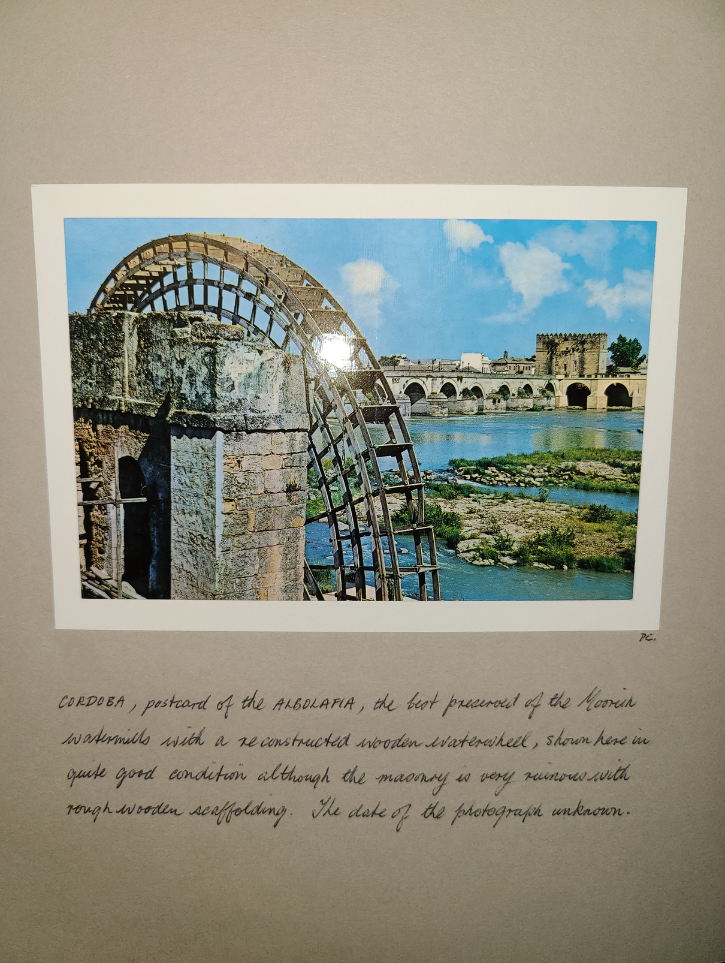
His detailed plans preserve their history and allow future millwrights to repair these pillars of our industrial past. You can help us to protect our built history while our young volunteers share its significance with school pupils.
Olive also catalogued watermill pictures from the mill expert, Alan Stoyel’s collection—an endeavour helped by volunteers Nigel and Jamie. Taken from Wales to Spain, Alan’s notes and photographs allow us to uncover the development and uses of water power. Recently, we received the photo albums of David Edwards, a mill enthusiast and SPAB member, encompassing much of the Mediterranean. Within them was a medieval noria mill, the Molino de la Albolafia, in Cordoba, Spain used for lifting water for irrigation. A relic of Arabic influence in Spain, it mirrors the Norse encroachment in Shetlands mills.
The history of watermills and tide mills is as much the story of human connection as the well-travelled waterways and seas they flanked. We need your help to make this history accessible and give young volunteers the skills to share it.
